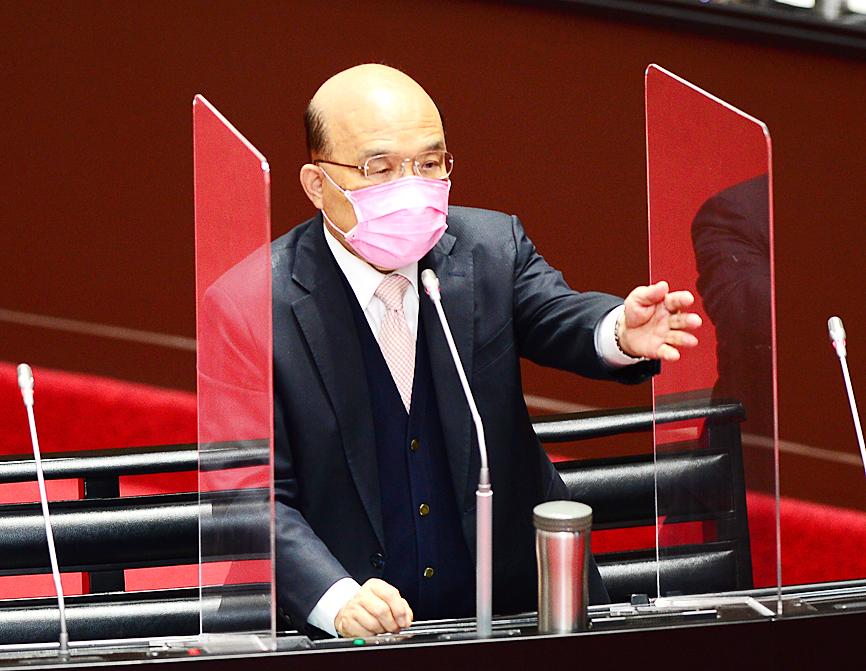Premier Su Tseng-chang (蘇貞昌) and other top Democratic Progressive Party (DPP) officials yesterday condemned Beijing after it announced that they had been placed on a no-entry list and would be subject to further sanctions.
China’s Taiwan Affairs Office spokeswoman Zhu Fenglian (朱鳳蓮) said that Taiwanese independence advocates and their family members would face life-long legal consequences should they set foot in China, including Hong Kong and Macau, or conduct business with entities there.
It was the first time China announced concrete sanctions against who it calls supporters of Taiwanese independence.
The office named Su, Legislative Speaker You Si-kun (游錫堃) and Minister of Foreign Affairs Joseph Wu (吳釗燮) as part of “an extremely small minority of diehard Taiwanese separatists who caused extreme harm ... to the fundamental interests of the Chinese race.”
China would also take “any other necessary measures” against these people, Zhu said.
She said that the message China wants to send to supporters of Taiwanese independence is: “Those who forget their ancestors, betray the motherland and split the country will never end up well and will be spurned by the people and judged by history.”
During a plenary session at the legislature, DPP Legislator Chen Ting-fei (陳亭妃) asked Su to comment on the news before congratulating him for being a “Beijing-certified Taiwanese patriot.”
Su replied: “These foreigners are meddling in Taiwan’s domestic affairs. I fight for Taiwan and I will not give in to intimidation for doing the right thing.”
Separately, You said: “China’s Xinhua news agency is yet again raising my international recognition, and I must say I am quite proud of it; Miss Zhu has my sincere thanks.”
“However, I have no plans to run for office and she should not trouble herself with me,” he added.
China last year said it was compiling a global watch list of Taiwanese independence supporters, adding that those on the list would be punished.
The sanctions announced yesterday are likely to have little effect on the Taiwanese politicians, as they are unlikely to travel to China.
China has ratcheted up military, economic and diplomatic pressure on Taiwan since President Tsai Ing-wen (蔡英文) took office in 2016 after a campaign many understood to be in support of Taiwanese independence.
Additional reporting by Bloomberg
Source: Taipei Times - 2021/11/06





















